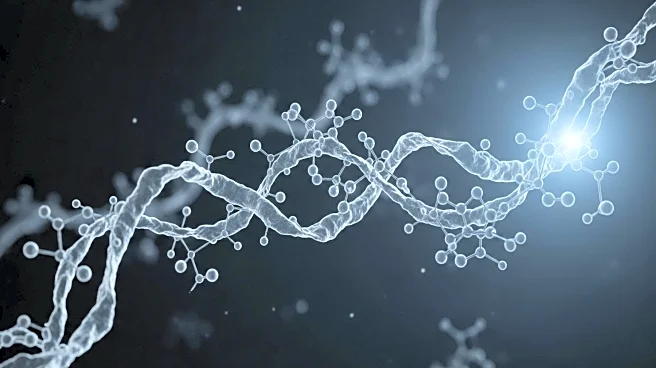What's Happening?
A team of researchers led by Microsoft has identified a potential vulnerability in the current biosecurity systems that screen DNA sequence orders for potential threats. This vulnerability, termed a 'biological zero-day,' refers to the risk that AI-designed proteins could bypass existing threat-detection mechanisms. These systems are designed to flag DNA sequences that could encode dangerous pathogens or toxins. However, the researchers argue that the rapid advancement in AI technology has outpaced these systems, potentially allowing AI-designed toxins to go undetected. The concern arises from the ability of AI to create novel proteins that do not match known threat profiles, thus evading current screening processes.
Why It's Important?
The discovery highlights a significant gap in biosecurity measures, which could have far-reaching implications for public safety and national security. As AI technology continues to evolve, the ability to design novel proteins could be exploited for malicious purposes, posing a new type of biological threat. This development underscores the need for updated and more sophisticated screening tools that can keep pace with technological advancements. The potential for AI-designed proteins to bypass existing security measures could lead to increased risks of bioterrorism or accidental release of harmful substances, necessitating urgent attention from policymakers and security agencies.
What's Next?
In response to these findings, there may be increased pressure on governments and industry stakeholders to enhance biosecurity protocols and invest in the development of more advanced threat-detection systems. Collaboration between AI researchers, biosecurity experts, and regulatory bodies will be crucial to address this emerging challenge. Additionally, there may be calls for international cooperation to establish global standards for DNA sequence screening and AI-designed protein regulation, ensuring a coordinated approach to mitigating potential risks.










